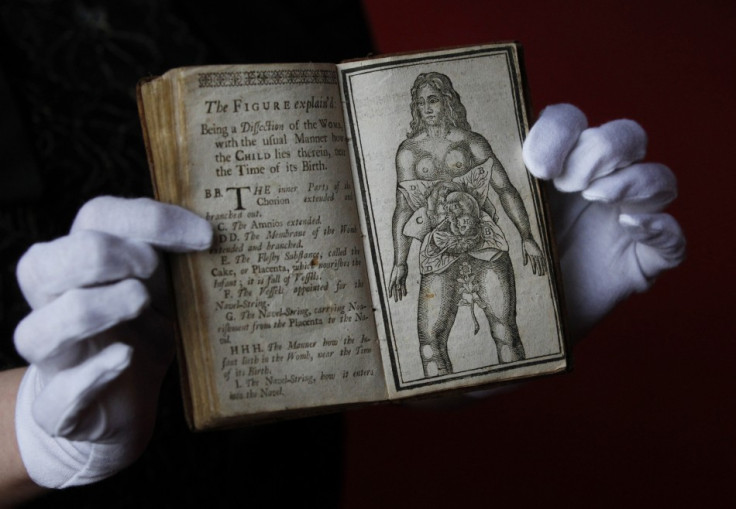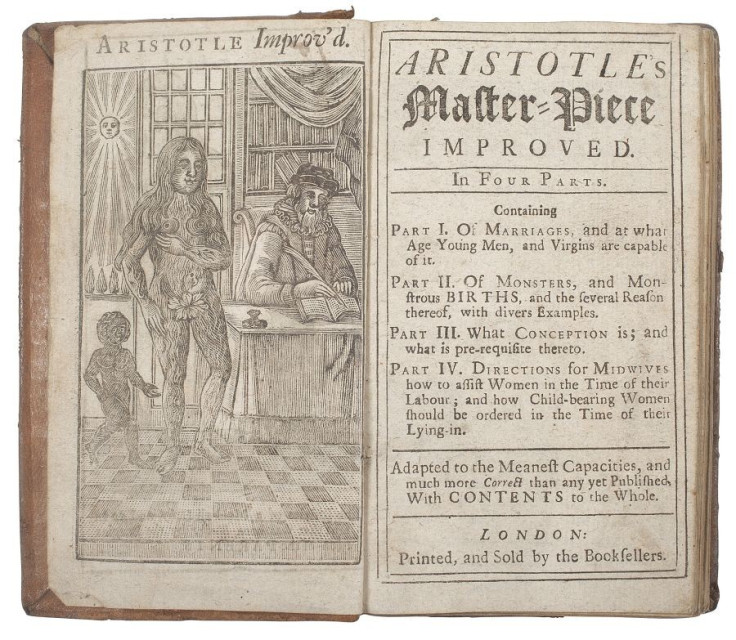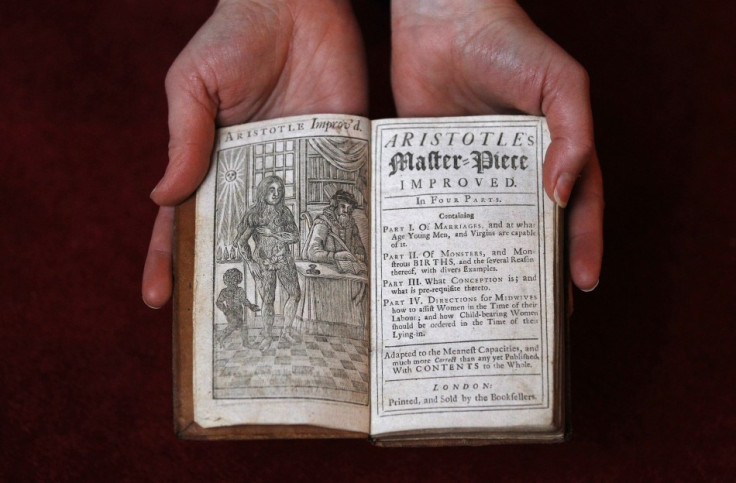Aristotle’s 'Banned' Sex Manual Sold at Edinburgh Auction for £550 [PHOTOS]

Aristotle's Compleat Master-Piece, a sex manual that was banned for over 200 years, has been sold at auction for £550.
The book was an early manual for sex and pregnancy and was considered "taboo and distasteful" by the public.
Information included in the text provided readers with ideas on sexual relationships and how to conceive.
It was incorrectly attributed to Aristotle and new research suggests that it was given its name as a marketing ploy by the real authors, according to a spokesman for Edinburgh's Lyon & Turnbull auctioneers, which sold the book.
"It was just a way of selling more," the spokesman said, adding that no one knows who really wrote the book.

Although it was believed to have been banned, it is now thought the pohibition was unofficial; the book was considered so distasteful that printers avoided including their names in the book for fear of prosecution.
Aristotle's Compleat Master-Piece was predicted to sell for between £300 and £400, however it far surpassed this amount.
The buyer, the spokesman said, was a book dealer from the south of England.
The edition auctioned was printed in the 1760s. The book first appeared around 1680 but it was not removed from sale until the middle of the 18<sup>th century. It was 'banned' until the early 1960s.
Cathy Marsden, a book specialist at the auctioneers, said: "It was very popular. It was probably the most printed text of its kind and it went through a lot of editions.
"It was very popular whilst it was banned. You could certainly buy it under the counter.

"There's nothing in it that would really be considered dirty in our society now. It's funny more than anything.
"There are various things which warn parents about what could happen to their children if they sinned whilst conceiving them, perhaps by having sex outside marriage.
"It would say that your baby would be born all hairy or it would suggest that Siamese twins were the result of the parents' sins.
"There are also interesting bits about the 17th century notion that it was considered beneficial for a woman to enjoy sexual intercourse in order to conceive. It suggests that both men and women should enjoy sex.
"That's interesting because much later on, when they realised that a woman didn't have to climax in order to conceive, the idea of a woman enjoying sex was considered far less important."
© Copyright IBTimes 2024. All rights reserved.







